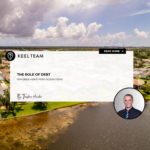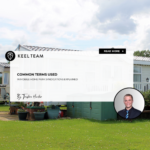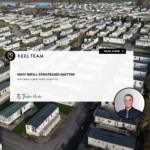Will Mobile Home Park Investing Stay a Top Real Estate Asset by 2030?
-
 Tristan Hunter - Investor Relations
Tristan Hunter - Investor Relations

Investors have long seen mobile home park investing as a stable and recession-resistant asset class. With rising housing costs and continued demand for affordable living, mobile home parks have offered steady cash flow, low operating expenses, and strong tenant retention. But what will the industry look like in 2030?
As real estate markets evolve, investors need to assess future trends in supply, affordability, and investment opportunities. While no investment is guaranteed, mobile home parks could still be an attractive asset for those who understand the shifting landscape.
The Supply Challenge: Why Mobile Home Parks Remain Scarce
One of the biggest factors driving mobile home park investing is the limited supply of properties. Unlike other real estate sectors, new mobile home parks are rarely developed due to restrictive zoning laws and community resistance.
Why Aren’t More Mobile Home Parks Being Built?
- Zoning Restrictions – Many local governments do not approve new mobile home park developments, preferring higher-tax commercial or residential projects.
- Community Opposition – Many neighborhoods resist mobile home parks due to outdated perceptions of lower property values and increased density.
- Land Costs – Rising land prices make it difficult for developers to justify new mobile home park construction when other property types offer higher returns.
What This Means for Investors
Since supply remains tight, existing mobile home parks may become even more valuable. Investors who own properties in well-located areas could benefit from increasing demand with limited competition.
Affordability: The Growing Demand for Low-Cost Housing
Housing affordability is one of the biggest economic concerns in the U.S. As home prices and apartment rents continue rising, many households are searching for lower-cost living alternatives.
Why Demand for Mobile Home Parks May Increase by 2030
- Rising Home Prices – The cost of homeownership has outpaced income growth, making traditional homeownership less accessible.
- High Apartment Rents – Multifamily rental rates continue climbing, pushing renters to look for lower-cost options.
- Retirement Trends – Many retirees live on fixed incomes and seek affordable housing, making mobile home parks an attractive choice.
How This Impacts Mobile Home Park Investing
If housing affordability challenges continue, demand for mobile home parks may rise, keeping occupancy rates high. Investors could see steady cash flow and long-term tenant retention.
Download our FREE eBook on the Top 20 things to know BEFORE investing in mobile home parks!
Market Trends: How Mobile Home Park Investing May Change by 2030
The mobile home park industry has evolved over the years, and new trends could shape the investment landscape leading up to 2030.
1. Increased Institutional Investment
Institutional investors have already entered the mobile home park space, acquiring portfolios across the country. As demand for alternative investments grows, more private equity firms and REITs could target mobile home parks, increasing competition for acquisitions.
2. Technology-Driven Management
By 2030, technology will likely play a bigger role in mobile home park management:
- Automated Rent Collection – More communities could use digital payment platforms.
- Smart Infrastructure – Utility monitoring and security systems may become standard.
- Online Leasing & Communication – Investors may see improved tenant relations through digital tools.
3. Evolving Regulation and Rent Control
State and local governments are paying more attention to mobile home park affordability. While some markets allow rent adjustments based on market conditions, others have explored rent control policies. By 2030, regulation could impact how investors manage mobile home parks in certain states.
Investment Opportunities: What Investors Should Watch
Even though the market is evolving, mobile home park investing could still present strong opportunities. Investors who understand key market drivers may be positioned for long-term success.
1. Secondary and Tertiary Markets
While large metro areas have seen increasing institutional investment, secondary and tertiary markets could offer stronger cap rates. Investors willing to explore smaller markets may find better acquisition prices and lower competition.
2. Value-Add Strategies
Investors can still create value through:
- Infrastructure Upgrades – Improving roads, utility systems, and landscaping.
- Utility Optimization – Shifting from master-metered utilities to bill back or direct-billed systems.
- Rent Increases – Raising rents in accordance with the market.
- Tenant-Owned Homes (TOHs) – Converting park-owned homes to resident-owned units to reduce operational costs.
3. Seller Financing and Creative Deal Structures
With rising interest rates, some investors may look for seller financing options to structure deals more favorably. By 2030, creative financing could be a key tool for acquiring mobile home parks at competitive terms.

Potential Risks to Consider with Mobile Home Park Investing
Like any investment, mobile home parks come with risks. While demand for affordable housing remains strong, several challenges could impact the industry.
1. Increased Competition
As mobile home park investing grows in popularity, competition for acquisitions may drive up prices. Investors may need to identify off-market deals or explore emerging markets to find strong opportunities.
2. Regulatory Uncertainty
Changes in rent control laws, environmental regulations, or tenant rights could affect long-term returns. Investors should stay informed on local and state policies before making acquisitions.
3. Rising Maintenance Costs
Aging mobile home park infrastructure could lead to higher repair and upgrade expenses. Investors who plan ahead for maintenance and capital improvements may be better prepared to sustain cash flow.
Final Thoughts: Is Mobile Home Park Investing Still a Strong Bet for 2030?
While no one can predict the future with certainty, mobile home park investing continues to show strong potential as a real estate asset class. Limited supply, rising affordability challenges, and demand for stable housing could keep mobile home parks attractive to investors.
By 2030, investors who focus on market trends, operational efficiencies, and long-term tenant retention may position themselves for potential success. While challenges like competition and regulation exist, those who adapt to industry changes could continue benefiting from one of real estate’s most resilient investment opportunities.
Are you looking for MORE information? Book a 1-on-1 consultation with Andrew Keel to discuss:
- A mobile home park deal review
- Due diligence questions
- How to raise capital from investors
- Mistakes to avoid, and more!
Disclaimer:
The information provided is for informational purposes only and is not investment advice or a guarantee of any kind. We do not guarantee profitability. Make investment decisions based on your research and consult registered financial and legal professionals. We are not registered financial or legal professionals and do not provide personalized investment recommendations.

Tristan Hunter - Investor Relations
View The Previous or Next Post
Subscribe Below 👇






